How Weather And Climate Change Will Impact Different Types Of Businesses And Occupations
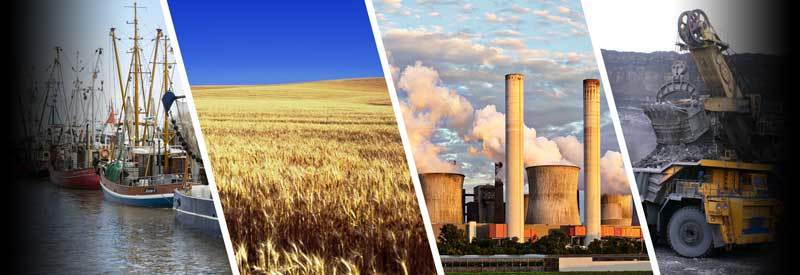
In recent years, very few people still deny the reality of climate change and its impact on global weather events. It will also impact different occupations and businesses, which we will all need to adjust to.
We are so focused on the physical impact of weather and climate change that many of us are oblivious to its indirect consequences that are much more serious than we may realize. We are referring to the economic implications in the very near future.
More specifically, we are referring to the effect that weather and climate change will have on the future and survival of many industries and related occupations.
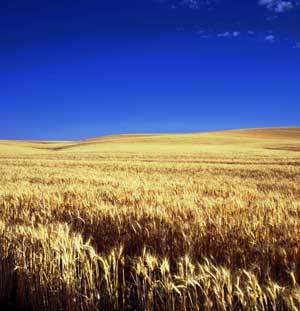
The devastating effect extreme and persisting changes in weather have on the agricultural sector are highlighted on the news every year. Whether it is flooding or drought, the majority of countries throughout the world are feeling the strain on their agricultural sectors.
Over time, climate change will be affecting several industries, not just agriculture. This also includes the professions associated with them. These potentially vulnerable industries and occupations will be the main focus of this article.
(Please note that the increasingly long-term weather changes and occurrences of extreme weather events are all symptoms of climate change. If you are still unsure about the relationship between weather and climate, you can find a clear explanation in this article.)
To highlight and illustrate this threat, we will be looking at eleven industries and 8 occupations that will be negatively impacted and disrupted as a result of climate change.
Eleven Industries That Will Be Negatively Influenced And Disrupted By Climate Change
The following industries have already been identified as some of the more visible casualties of climate change. Over time, many more sectors of industry may discover that they are also affected by this crisis that we created for ourselves.
1) Tourism

Countries and regions attract tourists both locally and from around the world. Many of the most beautiful and sought-after tourist destinations are unfortunately situated in locations increasingly targeted by natural disasters and rising sea levels due to climate change.
The Philippines Islands and the Maldives are just two examples of popular tourist spots that are threatened by the effects of a changing climate.
This has a negative effect on two fronts. Not only the tourist destination but travelers and vacation goers as well are affected by this growing problem.
First, many of these tourist destinations are countries or islands, which largest source of revenue comes from tourism. The damage caused by extreme weather events leads to huge costs as a result of rebuilding/moving resorts and hotels, as well as infrastructure.
Potential tourists are faced with two issues that may discourage them from visiting these tourist destinations. They are faced with the increased threat of being caught up in extreme weather events, as well as rising costs to compensate for repairing and rebuilding resorts.
The tourist industry is already feeling the effects of this serious problem. As conditions will only deteriorate in the future, so will the impact on tourism.
2) The Wine Industry
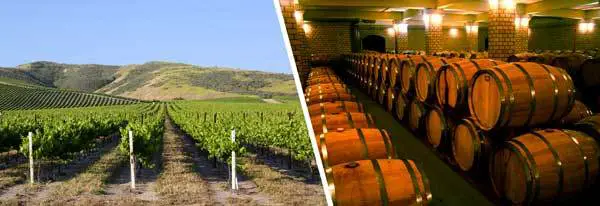
I already mentioned agriculture as one of the industries already severely affected by a warming climate. Within the agricultural sector, the wine industry is especially vulnerable.
Grapevines produce the best results in a particular climate, more specifically, a Mediterranean type of environment. A large part of wine-producing regions across the world which experience these conditions is now exposed to long spells of elevated temperatures. This may lead to grapes of inferior quality or result in a complete crop failure.
Apart from rising temperatures, the change in climate also leads to new forms of infestation from insects that flourish under the new conditions. The unpredictable and fluctuating weather also leads to flooding and soil erosion, compounding the problem for wine farmers.
3) Winter Holiday Resorts
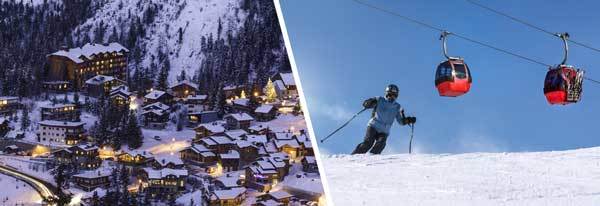
One of the most noticeable effects and irrefutable proof of Global Warming is the breakup of the icecaps at the Poles. Media coverage has given enough exposure to this phenomenon that is causing a rise in sea levels, a changing climate, and extreme weather events globally.
However, the long-term melting of ice is not limited to just the North and South Poles. Countries in or near the Arctic Circle, and high-lying areas in Europe and North America, heavily rely on snow coverage for their skiing resorts to operate.
Unfortunately, many of these areas are also seeing a reduction in snowfall and coverage due to warming temperatures. If the reduction in snow coverage continues to decrease at such an accelerated speed, that two-thirds of ski resorts will be forced to close by 2100.
(This estimate is according to Daniel Scott, Canada's chairman of Global Change And Tourism at the University of Waterloo.)
4) Insurance Companies

Natural disasters that are driven by climate change, such as hurricanes, flooding, forest fires, etc., come at a high cost to affected areas. Rebuilding infrastructure, the restoration of roads, telecommunication, water supplies, and sanitation run into millions of dollars.
But, it also comes at a huge financial cost for another financial sector, namely the Insurance Industry. In 2012, Hurricane Sandy caused over $70 billion in losses to the economy. Insurance companies had to pay out $26 billion for the items that were insured.
Since then, an increasing amount of natural disasters have occurred over the following years with similar results. The huge financial strain on the insurance companies inevitably leads to a rise in insurance premiums, affecting the consumer.
At some point, the insurance industry will simply not be able to carry the financial load of these natural disasters anymore, and customers will not be able to afford the rising costs of insurance premiums. And this will threaten the very existence of the insurance industry.
5) Commercial Fishing
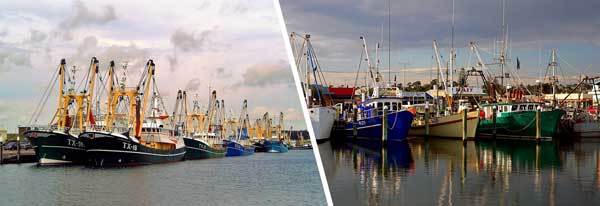
Climate change is affecting the fishing industry in two very different ways. The amount of carbon dioxide building up in the atmosphere is already at a critical level. Combining this toxic gas with water leads to the world's ocean water turning acidic.
The rise in temperatures in oceans, rivers, and damns make the natural habitat for some fish species difficult to survive in. The warm waters in rivers during 2003, Scotland's warmest year to date, led to the death of hundreds of salmon due to a lack of oxygen.
The combination of the acidification of seawater with rising water temperatures is leading to a rapid decline in the global fish population. Combined with overfishing, this does not bode well for the future of commercial fisheries and smaller fishing communities.
6) The Airline Industry
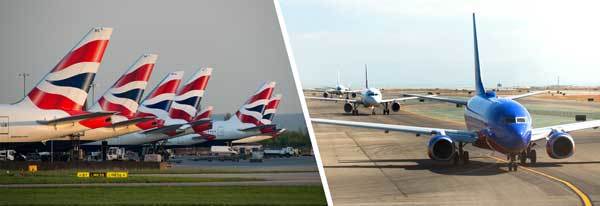
The airline industry gets hit from a variety of fronts as a result of weather & climate change.
Dangerous and unsafe weather conditions (aka stormy and extreme weather events) are the primary cause of delays and cancellations of flights at airports across the world. This is not just inconvenient for travelers, but financially very costly for airlines.
Airlines are also faced with the increasing problem of aviation fuel. The constant rise in fuel prices is accompanied by unpredictable wind conditions, which can cause an aircraft's engines to work harder and use up more fuel than intended.
Strict emissions standards imposed by many countries is forcing airlines to invest in more fuel-efficient aircraft and limit the way in which existing aircraft operate. All these additional factors are only adding to the financial pressure airlines are already experiencing.
7) Mining

The mining industry, especially those involved in the extraction of fossil fuels, is under severe pressure from both restrictive legislature and decreasing profit margins.
In the previous section, I mentioned the strict emission standards imposed by countries on industries. The Paris Climate Agreement was reached in 2015, which was adopted by 197 countries, with the aim of limiting the global rise in temperature this century to 2° Celsius.
One of the components of this agreement was the reduction in greenhouse gases to reduce global warming. This means the move away from the burning of fossil fuels that create these greenhouse gases. This directly impacts the coal mining industry.
Traditional sources of energy use coal-burning and other fossil fuels to create electricity. The move towards cleaner sources of energy (wind, solar & nuclear) combined with the tighter restriction on fossil fuel emissions is a double blow for coal mining.
The biggest impact on the coal industry is a shrinking global market. As more countries are moving towards cleaner power sources, there is simply not enough demand for coal. The situation is worsened by the mining process itself, using machinery that also burns fuel.
The majority of mines (not just coal mines) use a large number of heavy machinery to move earth and ore around, especially in open mines. The number of emissions that are generated can quickly exceed the limits that are regulated by authorities.
Add contributing factors like deteriorating weather conditions that are making access to and conditions in mines more hazardous, and we are left with a mining industry that is battling to stay profitable and survive under severe pressure.
8) Agriculture
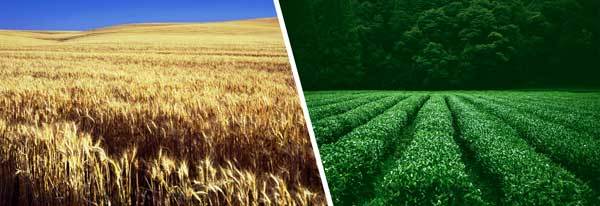
Earlier in this section, I focused on a part of the agricultural sector that is uniquely vulnerable to climate change, namely the wine industry. This is due to its dependency on specific weather conditions to produce the quality of grapes necessary for wine-making and export.
Many agricultural products are more resilient to the elements, such as grain, corn, and sugar cane. They grow under a variety of conditions but are not immune to climate change.
Extended periods of drought can severely influence these crops, rendering them unfit for harvesting. Under severe conditions, it can even lead to complete crop failure.
Dry conditions can also lead to soil deterioration and loosening, which make them more susceptible to wind and water erosion. This type of erosion removes valuable topsoil necessary growth way from otherwise fertile farmland.
Persistent periods of rainfall not only lead to flooding and erosion, but standing water will inevitability result in crop failures.
These are not future conditions that were described here but had already been taking place over the last decade across the globe, causing many farmers to lose their land. Over time, this will not just affect individual farmers but entire agricultural sectors.
9) Energy Companies
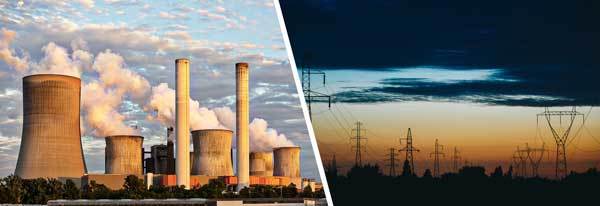
At this, stage there is no need to explain the need to move away from the burning of fossil fuels to reduce the creation of greenhouse gases, one of the primary contributors to global warming. I already explained its impact by focusing on relevant industries.
You will also be aware of the strict emission standards and restrictions imposed by a majority of countries on industries producing or excavating fossil fuels, as well as releasing greenhouse gases into the atmosphere.
This creates a huge problem for the energy-producing industry, especially those still dependent on fossil fuels. It is especially problematic for developing countries, and those whose's energy demands outweigh the capabilities and costs of clean alternatives.
Developed countries focused on clean energy already use nuclear power and are investing in alternative energy sources, such as wind, solar, and hydroelectric power. Even for them, a power shortage sometimes means supplementing with traditional power sources.
Changing from traditional to alternative clean energy production is very costly, as it entails a complete change in infrastructure and investment into alternative energy sources. Most developing countries and traditional energy companies simply can not afford this.
Growing pressure from the global community is putting companies still using fossil fuels to produce energy under a lot of strain. The global reduction in coal production, combined with increasing restrictions and penalties, threatens the future of these companies.
10) The Beverage Industry
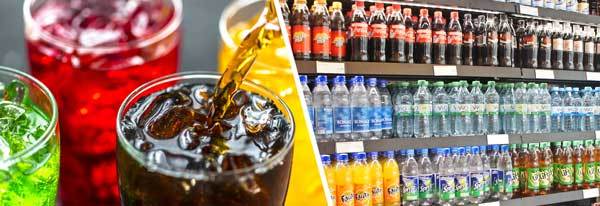
Yes, you read that right. Even beverage companies are already affected by changes in weather and climate. The situation will only worsen in the future as the problem with water shortage continues to worsen due to the continuing rise in global temperatures.
The soft industry drink and companies producing bottled water are the most at risk since water is the most important and biggest ingredient in their products.
Companies producing soft drinks are also negatively impacted by their reliance on large amounts of sugar. Since the agricultural sector also suffers as a result of climate change, sugar cane and sugar beet plantations are directly affected.
As a result, soft drink companies will not only battle water shortage problems but a potential shortage of sugar supplies, which will also inevitably lead to a rise in sugar prices.
Breweries can also be listed under this category. A large quantity of water is used in the production of beer and similar alcoholic beverages. For example, global beer giant Anheuser-Busch uses 3½ barrels of water to produce just one barrel of beer.
Breweries need to adapt to new and innovative ways to produce beer in such a way that less water is used in the brewing process. If they are unable to implement water-saving processes successfully, the whole industry will suffer, leading to shortages and rising costs.
11) Construction Companies

One industry that you will not normally associate with weather and climate change is the construction industry. This only goes to show you the far-reaching effects of climate change.
Prolonged periods of warm or cold & stormy weather both have potentially negative effects on construction. Unpredictable, stormy weather that is a trademark of a changing weather system leads to long delays in construction, as well as dangerous working conditions.
These delays are very costly for construction companies, as it means not meeting targets, paying a workforce when no work is possible, and disruption in scheduling and the delivery of building supplies.
Extended periods of heat also impact the industry. It creates an uncomfortable working environment, with heat-related fatigue reducing productivity. Warm conditions also make concrete problematic to cure. The combination of both leads to a slowdown in construction.
The building industry must not only adjust to a changing climate but also find ways to construct buildings that can withstand its effects. This includes the creation of buildings that can cope with heat more efficiently, as well as withstand extreme weather events.
Related Industries And Occupations That Will Be Influenced And Disrupted By Climate Change
Needless to say, jobs and industries directly or indirectly related to the ones mentioned in the previous section are also adversely affected. Here is a list of a few of the occupations and related industries, highlighting just how many jobs and industries may be affected.
1) Agriculture:
- Farmers
- Farm Workers
- Manufacturers Of Agricultural Equipment
- Companies Manufacturing Pesticides
2) Airline Industry
- Pilots
- Cabin Crew
- Ground Staff
- Aircraft Manufacturers
3) Construction
- Construction Workers
- Manufacturers Of Construction Equipment
- Manufacturers Of Building Materials
- Smaller Building Companies
4) Tourism
- Holiday Resorts
- Hotels
- Tourist Operators
- Worker In The Hospitality Industry
5) Commercial Fishing
- Fishermen
- Manufacturers Of Commercial Fishing Equipment
- Manufacturers Of Fishing Vessels
- Fisheries
- Commercial Fishing Fleets
6) Winter Holiday Resorts
- Professionals Ski Instructors
- Ski Resorts
- Manufacturers Of Skis, Snowboards, And Boots
- Manufacturers Of Related Equipment Like Snowmobiles, Ski Lifts
- Resort Hospitality Staff
7) Mining
- Miners
- Mining Engineers
- Mining Companies
- Manufacturers Of Mining Equipment
- Refineries Of Coal, Gold, Platinum Etc.
- Drilling Companies
Off course, there are a large number of jobs and related industries not mentioned in this list, but the purpose of this list is to just give you a small taste of the extent to which weather and climate change are affecting industries and related occupations.
Conclusion
After reading this article, you will be well aware of the fact that many more industries are affected by changes in the climate. In fact, you may come to the conclusion that very few industries will not be affected by our changing weather systems.
The thought is unsettling but sadly a proven reality. This does not mean all industries face extinction. With proper planning and the willingness to adapt to the changing conditions, most industries will be able to survive, but some difficult decisions need to be made.
With the downscaling or closure of some industries, many new industries will be created to assist with the creation of "clean energy," other industries creating environment-friendly products, and also ones adapting infrastructure to cope and make use of natural resources.
The goal of this article is to make you realize how broadly our changing climate will affect most industries, as well as emphasizing the need for different economic sectors to make early preparations and adapt as quickly as possible to limit the consequences.
Initiatives are already implemented on a global scale to slow down the severity of global warming, but individual companies can always do more to help the process along.
Never miss out again when another interesting and helpful article is released and stay updated, while also receiving helpful tips & information by simply clicking on this link .
Until next time, keep your eye on the weather!
